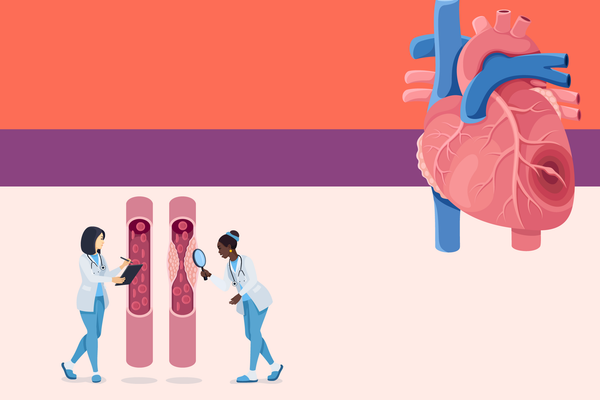When you hear "heart attack" do you generally think "male?" Many people do - and that thinking could account for a few facts: research shows that women go to the hospital on average one full hour later than men do after experiencing a heart attack. And since every minute counts, delaying care may result in poorer outcome for women.
The classic symptoms - like acute pain, tightness, burning and a dull ache in the chest - are not the only ones that clue women in to the fact that they may be having a heart attack.
Here are some symptoms of a heart attack that are more typical for women:
So what can you do? Be your own advocate and trust your instincts! Experts suggest that even if you think you're repeating yourself over and over again, be clear about your symptoms. And of course, know your risk factors. Sometimes, because the symptoms are not typical heart attack symptoms, they are interpreted as less severe illnesses or injuries.
If you're wondering about aspirin and which type to keep handy in case of a heart attack or near-attack, it's been found that chewable aspirin is the type that absorbs most readily.
Have you had an experience with having to convince your doctor of a heart attack? Or have you had symptoms that were dismissed as "stress" when you knew there was something real and serious? Sharing your stories can be helpful.
The classic symptoms - like acute pain, tightness, burning and a dull ache in the chest - are not the only ones that clue women in to the fact that they may be having a heart attack.
Here are some symptoms of a heart attack that are more typical for women:
- shortness of breath
- nausea or vomiting
- dizziness
- anxiety
- back or jaw pain
- pressure-like chest pain between the breasts
- rapid heartbeats or palpitations
- unusual tiredness
So what can you do? Be your own advocate and trust your instincts! Experts suggest that even if you think you're repeating yourself over and over again, be clear about your symptoms. And of course, know your risk factors. Sometimes, because the symptoms are not typical heart attack symptoms, they are interpreted as less severe illnesses or injuries.
If you're wondering about aspirin and which type to keep handy in case of a heart attack or near-attack, it's been found that chewable aspirin is the type that absorbs most readily.
Have you had an experience with having to convince your doctor of a heart attack? Or have you had symptoms that were dismissed as "stress" when you knew there was something real and serious? Sharing your stories can be helpful.




